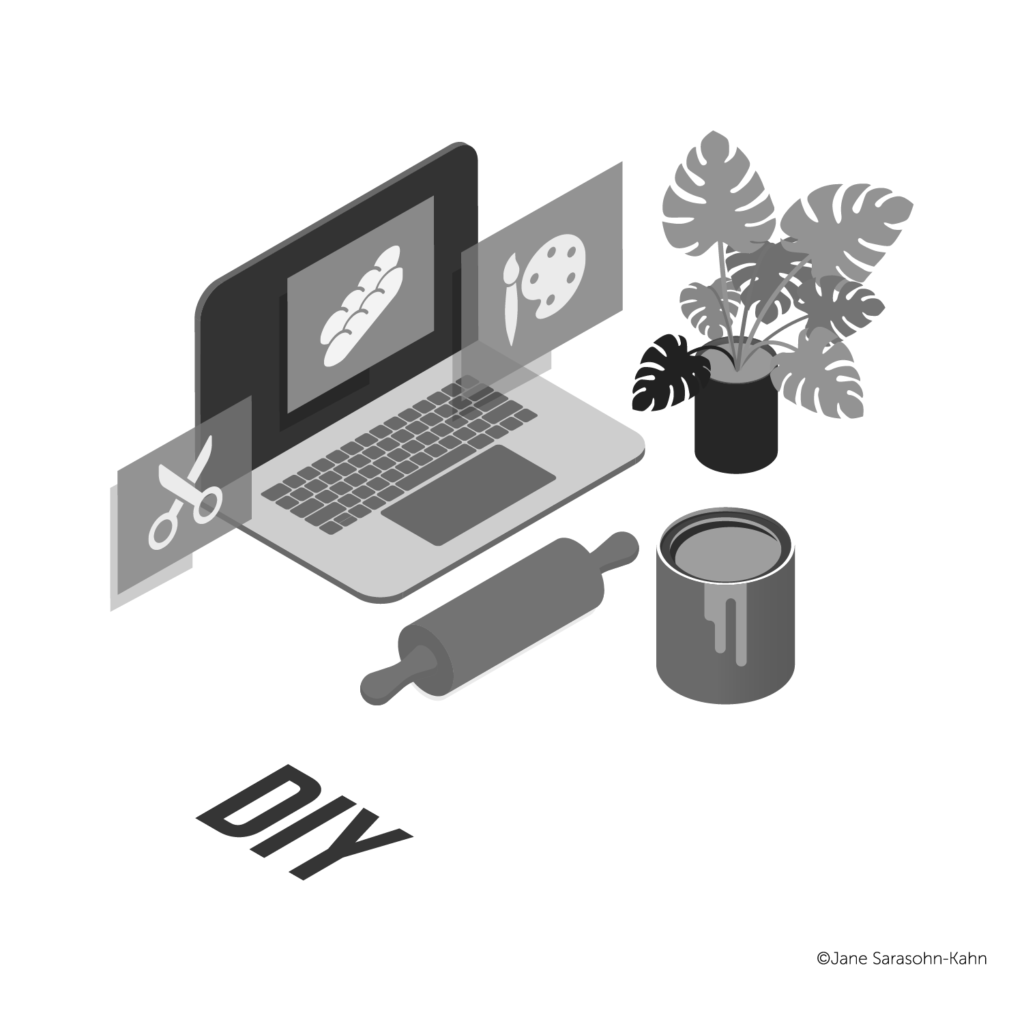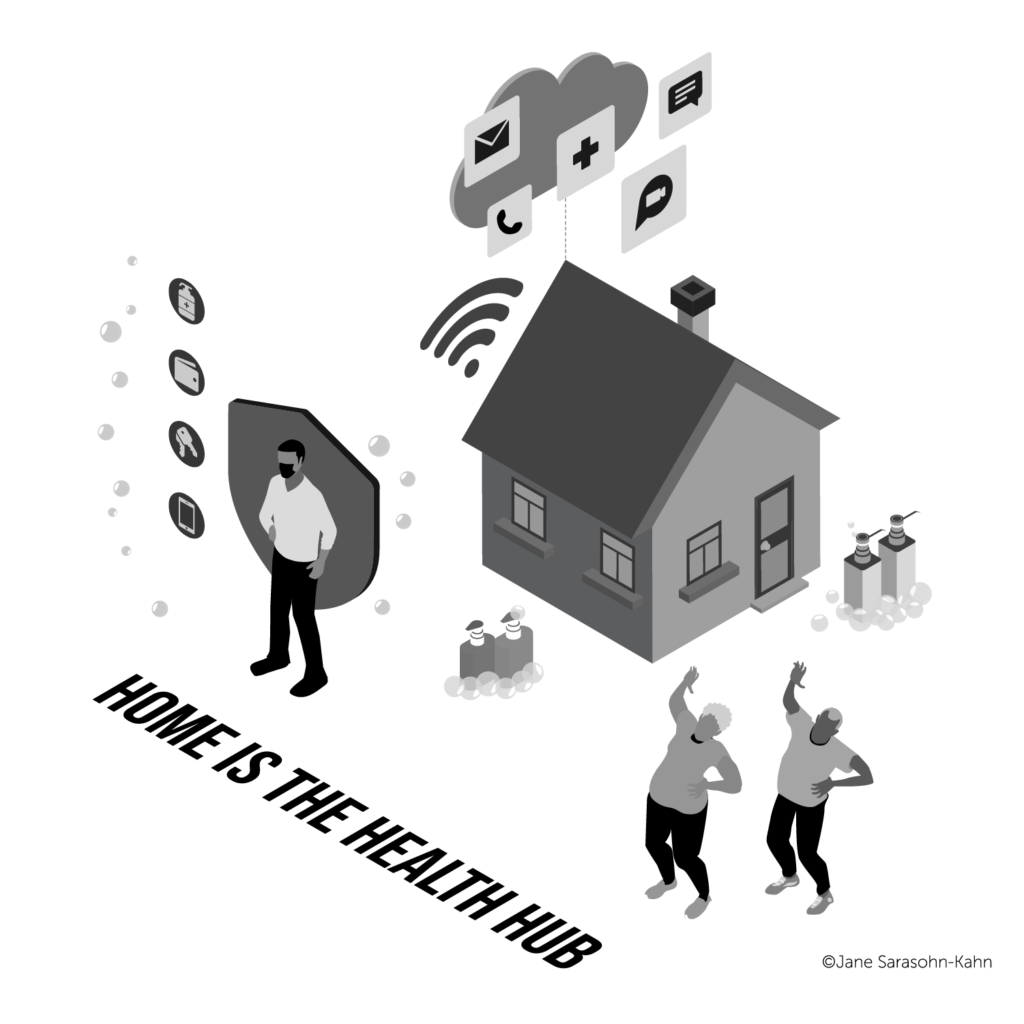The coronavirus pandemic has spawned many side-effects re-shaping consumers’ everyday lives. Among them, more time at home, DIY life-flows, and financial well-being are driving growth of self-care health care.
An article in the latest Drug Store News talks about consumers growing more health-conscious, adopting natural, homeopathic products.
“It’s about more than washing your hands,” David Salazar explains. “Fending off illness has become a state of mind for many consumers throughout the COVID-19 pandemic.”
 In feeling dis-empowered in the face of the pandemic – with the first shock of the Great Lockdown and stay-at-home mandates – we’ve taken on more do-it-yourself behaviors, from cooking and baking at home to home repairs and redecorating, gardening, and of course, furnishing our home offices and students’ home schooling spaces. I connect the dots of this phenomenon in my book, Health Citizenship: How a virus opened hearts and minds.
In feeling dis-empowered in the face of the pandemic – with the first shock of the Great Lockdown and stay-at-home mandates – we’ve taken on more do-it-yourself behaviors, from cooking and baking at home to home repairs and redecorating, gardening, and of course, furnishing our home offices and students’ home schooling spaces. I connect the dots of this phenomenon in my book, Health Citizenship: How a virus opened hearts and minds.
The pandemic has re-ignited self-care trends already in place at the start of 2020. In the COVID-19 era, consumers-as-patients are taking on more health care tasks we can do from home or close-to-home in retail health touch points physically separate from healthcare providers’ offices and hospital sites.
Salazar discusses how this ethos translates into peoples’ daily lives: “By living healthy and taking care of themselves, doing what they can to be proactive gives them some power back.”
Retail data analyzed during the first months of the pandemic have found health consumers spending more dollars on natural and homeopathic products, especially among Millennials. One analyst opined that Millennials have been, “moving away from chemicals and pharma anyway,” with COVID-19 accelerating this trend to the larger population.
In the pandemic, retail health categories that have fast-grown focused on boosting immunity and over-the-counter (OTC) products for cough-cold, pain relief, eye care and digestive health.
Consumers’ self-care health care tactics increasingly mix homeopathic products with traditional OTCs, a survey conducted by the American Association of Homeopathic Pharmacists (AAHP) found looking into health consumers’ consumption patterns in the summer of COVID-19.
To that point, note that AAHP awarded Wegmans Food Markets, the grocery chain, the Association’s Integrative Medicine Award. Karen Shadders, Wegmans’ VP of Health. Wellness, Home & Entertaining, said in accepting the award, “We strive to offer our consumers as much choice as possible when it comes to caring for the health of their families and themselves.”
 Health Populi’s Hot Points: Reading the Drug Store News story was a kind of déjà vu for me, reflecting on work I did with Rod Falcon and Institute for the Future on personal health ecologies in….2005. In that research, we identified the drivers motivating peoples’ personal “project management” of their health and well-being, citing “soaring health care costs and cost sharing” as a key motivation for self-care.
Health Populi’s Hot Points: Reading the Drug Store News story was a kind of déjà vu for me, reflecting on work I did with Rod Falcon and Institute for the Future on personal health ecologies in….2005. In that research, we identified the drivers motivating peoples’ personal “project management” of their health and well-being, citing “soaring health care costs and cost sharing” as a key motivation for self-care.
The more things change, the more they stay the same, right? As I said…déjà vu!
Flash forward to last Sunday’s New York Times, reading the headline, “I Used to Go Out. Now I Go to The Home Depot.” Anne Helen Petersen wrote this essay describing how she has morphed into a “Lawn Dad” during the COVID-19 pandemic.
She explained that home improvement stores have seen their foot traffic increase in the pandemic, different from other retail stores. “Americans are so used to doing — and spending and bettering themselves — and that energy has to go somewhere like into the spaces we’ve been forced to inhabit for the past six months.”
Petersen devoted her essay to the therapeutic and physical benefits of gardening and home-making. But her concluding paragraph has a lot to offer us about our overall health and well-being beyond the coronavirus turning her into a self-described Lawn Dad.
The pandemic, she says, “shrinks our daily existences into small, isolating little worlds. Every day presents a new way to feel helpless, a new wrinkle of loneliness…But we can find agency, even comfort, in the smallness.”
Anne finds that in tending to her backyard and flowers in a windowsill. We can also care for and nurture ourselves with this level of gratification and self-actualization in the desperate moments of the pandemic.
